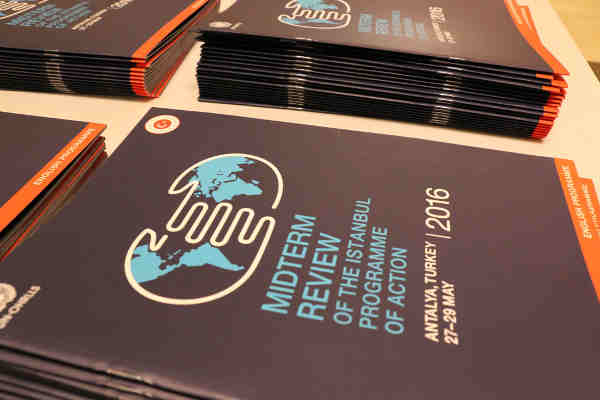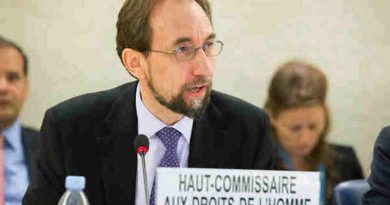UN Conference on Poor Countries Opens in Turkey

A United Nations conference focused on the world’s least developed countries (LDCs) kicked-off Friday in Antalya, Turkey.
The conference aims to assess these 48 States’ progress over the past five years, and to find ways of accelerating their path towards sustainable development.
“Least developed countries have seen significant progress and are a major human and natural resource potential for the world, but more needs to be done to support them,” said Gyan Chandra Acharya, the UN High Representative for Least Developed Countries, Landlocked Developing Countries, and Small Island Developing States, speaking in the Turkish coastal city.
“This event is a major opportunity for the international community to come together and reaffirm global commitments that were made in 2011 to ensure that the world’s poorest nations are at the forefront of efforts to build an inclusive and sustainable future for the world,” he added.
Five years ago, UN Member States met in Turkey and adopted the Istanbul Programme of Action (IPoA), a ten-year plan to give impetus to economic and social development in some of the world’s most vulnerable States.
The opening session of the Midterm Review of the IPoA, co-organized by Mr. Acharya’s Office (OHRLLS) and the Government of Turkey, brought together high-level representatives and over two thousand stakeholders from governments, international and regional organizations, civil society, the private sector, foundations, think tanks and the media.
The three-day event will focus on how LDCs have experienced some progress in areas including poverty reduction, child mortality, gender parity and access to internet and mobile networks.
Countries that demonstrate the lowest indicators of socioeconomic development – typically high infant mortality rates and low life expectancy rates, among others – are considered LDCs. A country is classified as an LDC if it meets three criteria:
Poverty – adjustable criterion based on Gross National Income (GNI) per capita averaged over three years. As of 2015 a country must have GNI per capita less than US $1,035 to be included on the list, and over $1,242 to graduate from it.
Human resource weakness (based on indicators of nutrition, health, education and adult literacy); and
Economic vulnerability (based on instability of agricultural production, instability of exports of goods and services, economic importance of non-traditional activities, merchandise export concentration, handicap of economic smallness, and the percentage of population displaced by natural disasters)
According to the UN, Samoa is the only country to have graduated since 2011. Equatorial Guinea, Vanuatu and Angola are scheduled to graduate.
Seven other LDCs – Bhutan, Kiribati, Nepal, Sao Tome and Principe, Solomon Islands, Timor-Leste and Tuvalu – have reportedly met the criteria as of March 2015. Only Botswana, Cape Verde and Maldives graduated before 2011.





